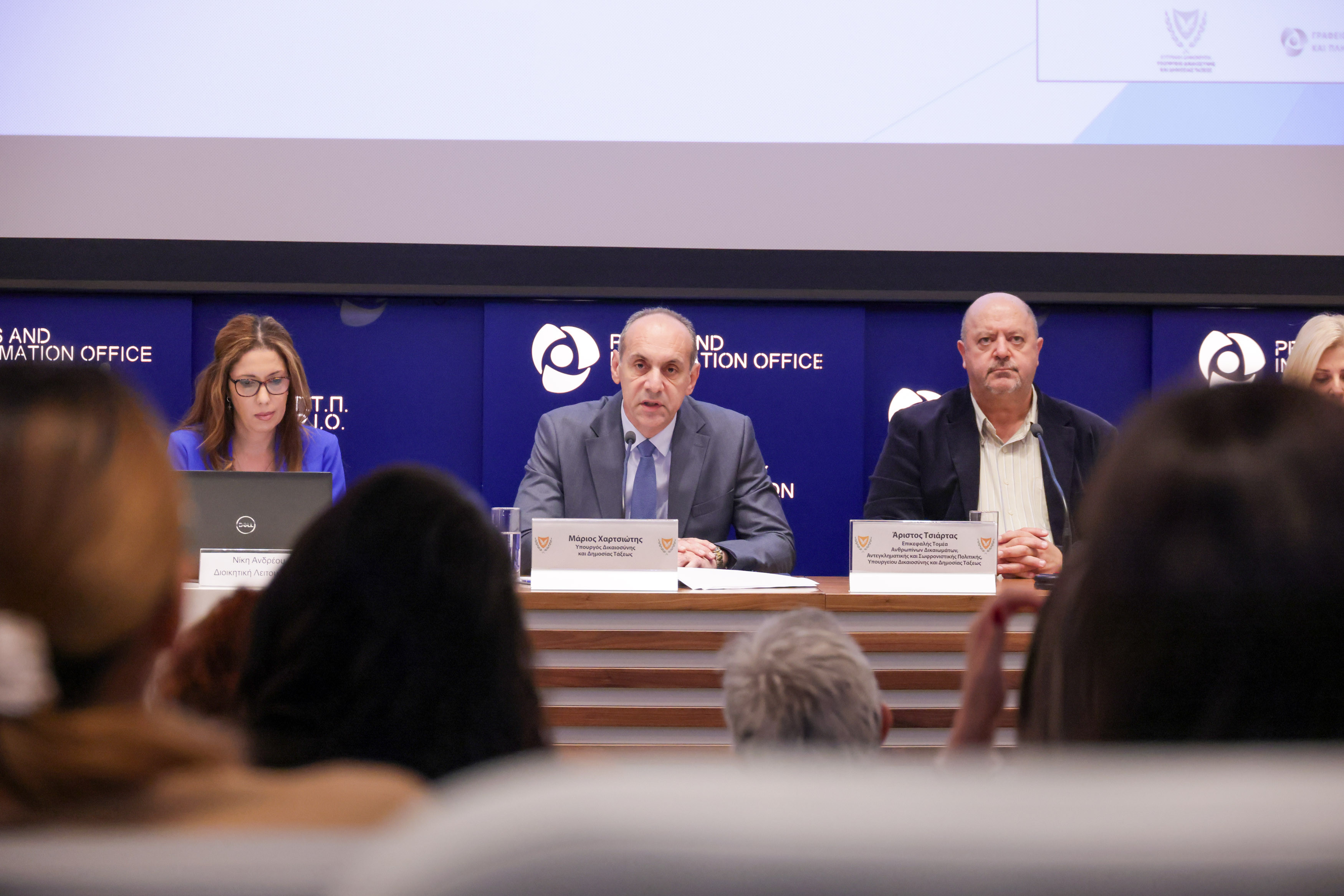Since last year, around 50 specially-trained professionals have been registered with ‘Family Mediation’, a new service created to provide a more human-centred rather than legalistic recourse for families in dispute.
Justice Minister Marios Hartsiotis said that because the service was relatively new, an awareness campaign was launched on Thursday that will run until the end of the month so that people know there is an alternative to having to resort to the courts.
“This is a particularly important institution,” the minister said. It was created in 2023 after the passing of the law on Mediation in Family Disputes of 2019 and the accompanying regulations in 2022.
He said the law on family mediation was a useful legal tool, which could contribute positively to the out-of-court resolution of family disputes, “significantly improving communication and relations between family members after divorce”.
Hartsiotis said it had proven effective and beneficial in other European countries, especially in divorce cases. Differences between partners could involve anything from parental care, child support, alimony issues or joint property disputes.
“It is expected to give the opportunity to thousands of citizens to resolve their disputes in a friendlier and more humane context, away from the courtrooms and judicial procedures, which are generally more time-consuming, more soul-destroying and more expensive,” the minister said.
This would be the central theme of the awareness campaign. The process is quick, economical, confidential “without conflict, attrition and family trauma”.
“It is a process that seeks to find mutually acceptable solutions within a climate of consensus and cooperation with the aim of limiting conflicts and rivalries and maintaining as healthy and functional relationships between family members as possible, and especially between parents and of their children,” he said.
“Let it not escape the fact that, regardless of the outcome of a marriage or a relationship between adults, ties with children are not severed for no reason.”
The mediation takes place with the assistance of an independent, third-party professional, or mediator, Hartsiotis said, adding that they came from law, psychology and social work. So far 50 have been registered with his ministry.
“It is important to emphasise that mediation relies on the parties’ voluntary participation in the process and there is no attempt to impose solutions,” he said.
“Mediation seeks to propose mutually-acceptable solutions and guide the parties to make the most beneficial decisions possible for the well-being and best interests of themselves, but above all, their children”.
He added that “it goes without saying” that solutions reached through mediation processes are often more sustainable and more effective and can prevent the recurrence of similar of disputes in the future.
The campaign launched on Thursday includes a radio spot, video, digital ads, graphics, printed materials with useful information and material, which will be disseminated through the mass media and social media.







Click here to change your cookie preferences